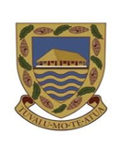About Us
The department of Women’s Affairs was established by the government in 1999 and significant advancements have been made in terms of legislation reforms, improving access to education and health, and raising awareness about gender equality, human rights, the importance for women to participate in decision-making at all levels, and on domestic violence. However, areas of concerns remain.
- Violence against women. The 2007 Tuvalu Demographics and Health Survey (TDHS) reported that 4 in 10 women have been subjected to physical violence by an intimate partner and approximately half of those acts are committed on women aged 25 to 29 (Government of Tuvalu, 2012).
- Limited opportunities for women to earn incomes. The 2007 TDHS reported that 49% of women, compared to 15% of men, were not employed in the 12 months preceding the survey. More women were in the in the lowest wealth quintile. (Government of Tuvalu, 2012) Limited opportunities for women to earn incomes. The 2007 TDHS reported that 49% of women, compared to 15% of men, were not employed in the 12 months preceding the survey. More women were in the in the lowest wealth quintile. (Government of Tuvalu, 2012).
- Limited participation of women in decision-making. While the law provides equal opportunity for women and men to contest elections, there were only two women out of 37 candidates who run for election in 2019 and 1 woman is currently member of the parliament (15 seats). More women now are part of the Falekaupules and the Kaupules. (Government of Tuvalu, 2012) However, despite the recognition that women are the backbone of their community, they have limited opportunity to voice their concerns and fully participate in those local government institutions.
- Gender is not yet mainstreamed across all government programmes. There is limited capacity in lines ministries and central department to generate and analyse gender statistics and use this information in the design and delivery of programmes and services.



